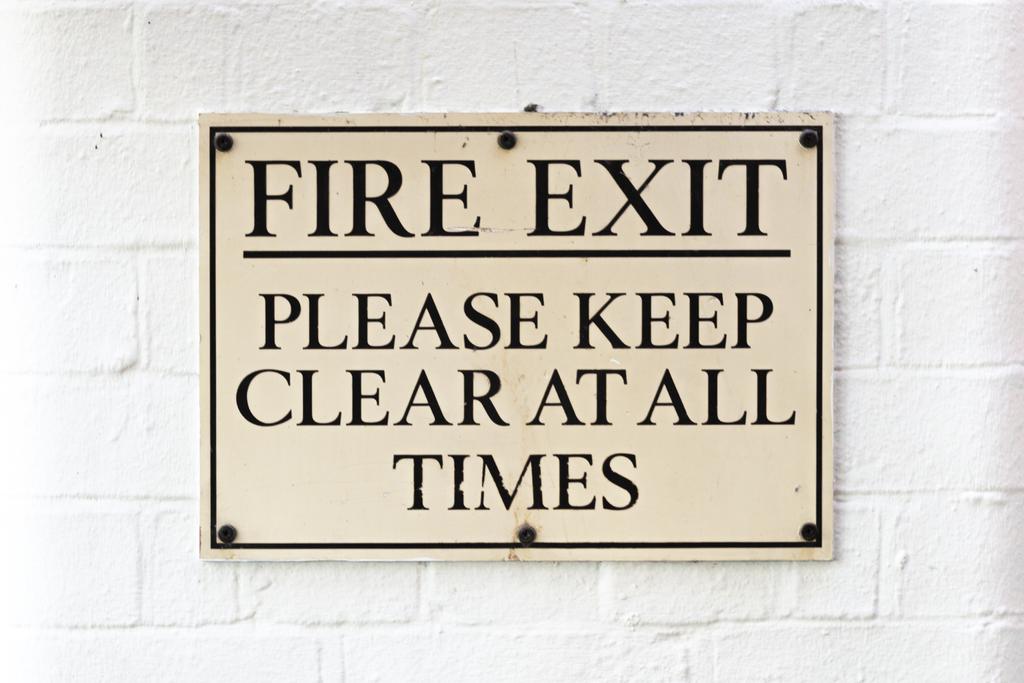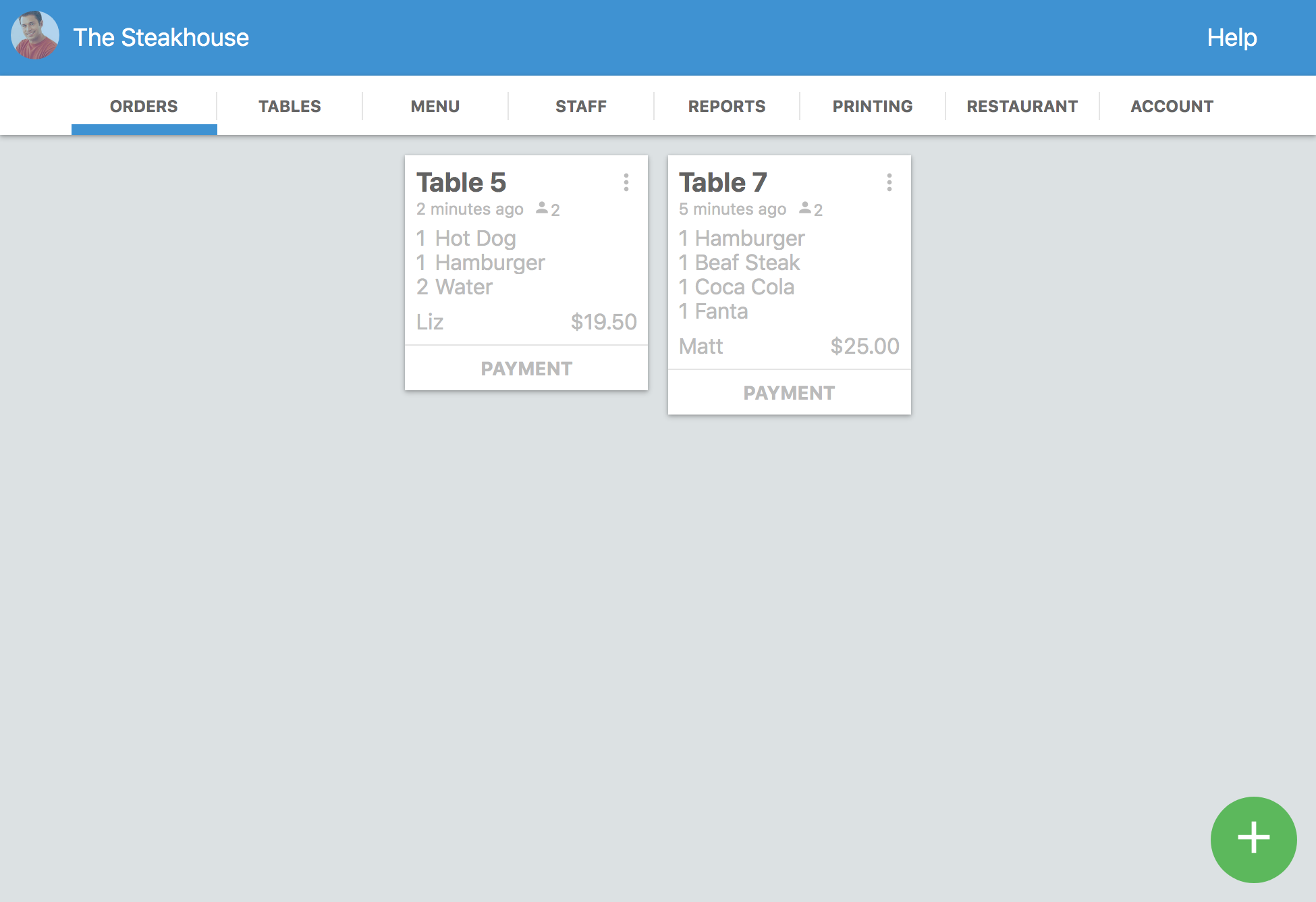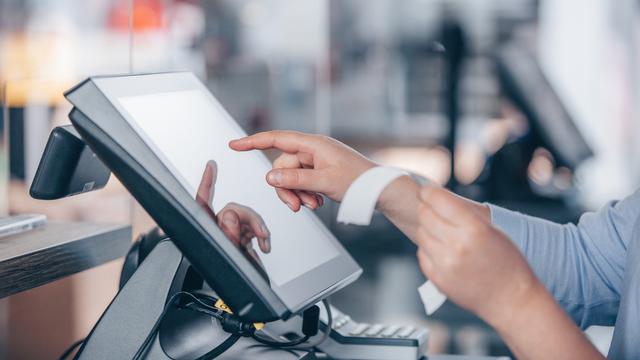Not sure how to create a restaurant regulation?
Not sure what rules will help your business?
Regulations are an important part of any business, including restaurants. Rules are reminders that will allow you to avoid behaviors, actions, and more that have a negative or detrimental result for your business.
In this article, I will tell you about:
- The importance of restaurant regulations.
- The process of creating rules in a restaurant
- The most important rules that you must have in your business.
- And more
The rules of a restaurant can be simple and have a very subtle influence on the business, or they can be crucial for the safety of your staff or your guests. Do you have the right rules in your restaurant?
Find out here!
Types of Rules and the Importance of a Restaurant’s Rules
![]()
Restaurant rules are a series of rules that each of the people within the organization chart of your businessmust follow.
There are different types of rules that vary depending on the people who must follow them and their purpose. For example:
- Safety rules for kitchen staff.
- Safety rules for the waiting staff.
- Rules of customer treatment for waiters.
- Rules for clients.
- Rules for using certain pieces of equipment, such as industrial ovens or kitchens.
- Rules for breaks.
- Rules for specific positions, such as the person in charge of washing the dishes.
- Rules for cashiers.
- Rules for cleaning the restaurant.
- General safety rules.
- Rules of interpersonal relations of employees.
- Personal presentation rules for employees.
All these rules have a specific purpose - to avoid mistakes, avoid accidents, improve coexistence among employees, improve customer treatment, and more.
There can be no organization without rules, which also includes restaurants.
Why?
Because a restaurant without rules is prone to chaos, serious accidents, poor quality service, high employee turnover, no problem-solving systems, and more.
I assure you, you don't want your restaurant to be in anarchy - creating rules is the best thing you can do to avoid it.
Also, in many cases, the most important rules are mandatory because they relate to restaurant processes and employee safety.
You must remember that a restaurant is a risky type of business, dealing with food, food storage, food processing, and high-temperature cooking. Also the use of sharp tools, slippery floors, glassware, and confined spaces where several people move increases the risk.
The rules are in place to avoid all of that, or at the very least, lessen the chance of accidents and mistakes.
How to Create the Rules of a Restaurant

Now, I’ll tell you about the process you must follow to create the rules of a restaurant.
The steps are quite simple, however, it is vital that you consider each of the different categories that will require the creation of rules in your restaurant.
This is because every restaurant is different, so yours may require specific rules to operate safely.
Let's get started!
1. Consider the Following Categories
As I mentioned earlier, the first thing you should consider are the different categories, or the different types of rules that you should apply in your restaurant.
The different types are:
- Safety rules.
- Food safety / inventory rules.
- Safety rules in the kitchen.
- Rules of hygiene and personal presentation.
- Rules of communication, treatment, and interpersonal relationships in the work area.
- Rules of communication with the client.
- Rules for cleaning and organizing the kitchen.
- Rules of cleaning and organization of the dining room.
- Among other specific rules that you want/should apply in your restaurant.
These are just some of the categories that may require more attention in your business to keep order, good relationships, and avoid accidents.
2. Think About What You Want to Avoid

This is quite simple - think about the mistakes, accidents, and negative results that you want to avoid in your restaurant.
For example, you want to avoid:
- That your kitchen staff is careless when it comes to using gas stoves and ovens.
- Have your kitchen staff leave the different areas of the kitchen dirty after the service, to clean them the next day.
- That your servers are unprofessional with certain customers.
- Let your customers enter the kitchen or other areas that they should not enter.
Sure, you should also think hard about specific things that you want to avoid.
For example, you would want to avoid that meat and fish are stored very close to each other in your refrigeration room because they would be contaminated with unwanted odors or flavors.
Or you may want to have your servers wear slip-resistant soled shoes in the restaurant at all times.
You should take note of each thing you want to avoid and move on to the next step.
3. Create the Rule in a Way That Avoids the Problem Efficiently
This step may sound obvious, however, there are many rules that are not really an ideal solution to the problem you are trying to solve. This, in turn, can end up causing more unnecessary problems in your restaurant. There is also the possibility that the rule you create is unspecific, leaving blind spots.
For example, the rule that your cooks should use lighters to light the kitchen, instead of using paper or long wooden picks.
This can cause them to use regular lighters instead of kitchen lighters, which can cause accidents.
Instead, the rule should be to have them use a kitchen lighter that you bought for the task, or better yet, the kitchen’s integrated pilot.
To accomplish this step, simply take the time to think about the purpose of each rule, the possible mistakes or blind spots of the rule, and how the problem could be solved efficiently.
4. Create Consequences to Enforce the Rule
There are no rules without consequences. In restaurants, there are several ways to enforce the rules that can help keep your staff in line at all times.
Sure, you also need to make sure the punishment makes sense.
For example, it wouldn't make sense to fire a cook for a simple mistake, or subtract a bit from his/her salary - that's something you should never do.
Instead, you can train the cook, explain what he did wrong, and warn him, before taking more drastic action.
You should also make sure that the punishment itself makes sense.
Continuing with the previous example of the kitchen lighter rule, you couldn't get mad at cooks if they light the restaurant kitchen in another way if you don't provide a kitchen lighter.
That also adds to the specificity of the rule.
Crucial Rules of a Restaurant
Here I’ll tell you about the most important rules that every restaurant must have in the different categories mentioned earlier. These will also serve as a quick guide for you to start creating the rules for your restaurant.
General Safety Rules
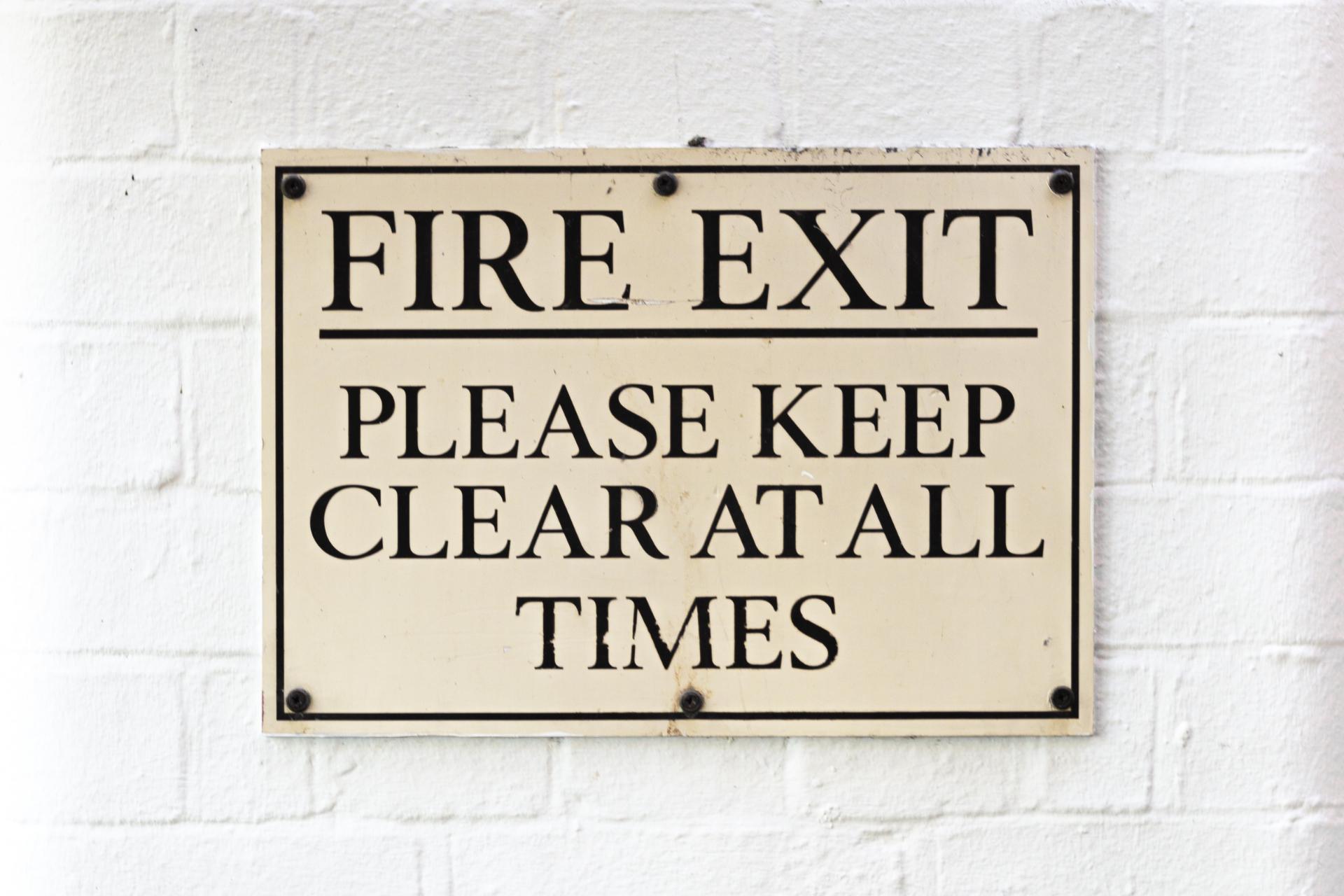
General safety rules vary depending on where you are, and in some places, it is important that your restaurant has security measures, protocols, and more in place in case of an emergency to be able to operate.
The most common safety rules in restaurants are:
- Prevent the restaurant from having more people inside than those recommended for the total space.
- Avoid blocking emergency exits in any way.
- Review the status of the restaurant's security equipment every 3 months.
- Carry out evacuation drills and fire drills every 3 months under the supervision of industrial safety officers from public organizations.
- Don't run in the restaurant.
- Staff must wear gloves, aprons, and safety shoes at all times.
It should be noted that the safety rules are more general, and can be applied to both customers and employees as long as the safety of the restaurant is at risk.
Food Safety/Inventory Rules
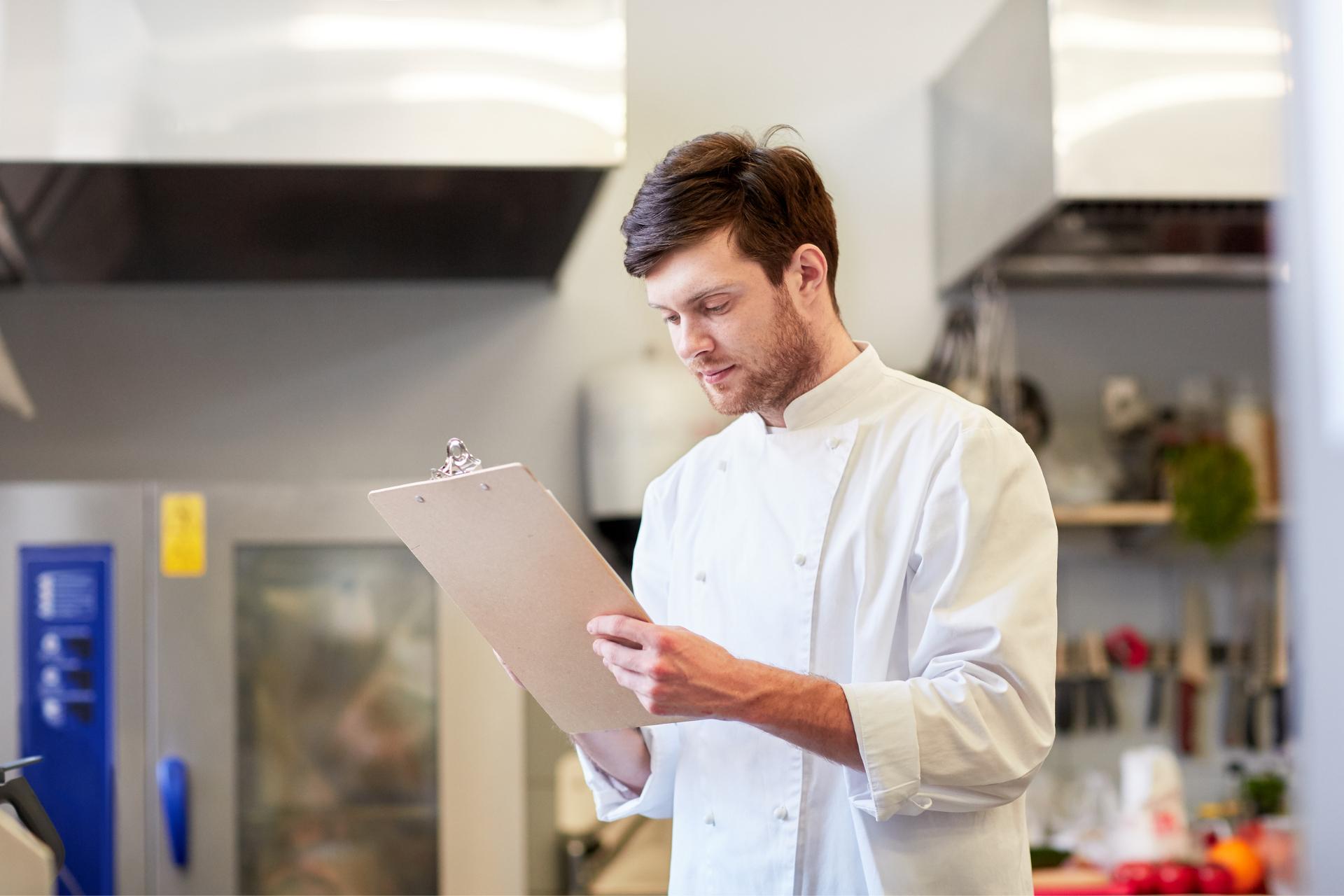
Food safety and inventory rules are intended to ensure that all food is stored correctly to maintain its quality and to be safe for your customers to consume.
Some common rules are:
- Organize new foods in the back of the refrigerator or cold room so that those that have been stored the longest are always used first.
- Weigh food when your restaurant’s suppliers deliver it.
- Store food properly as soon as it is delivered.
- Segment storage space well to avoid cross-contamination.
- Write down each ingredient that is used each day.
- Notify the chef or inventory manager before taking something out of the inventory.
These rules can also help reduce theft, losses, and other problems that may exist in your restaurant that cause you to lose money.
Safety Rules in the Kitchen
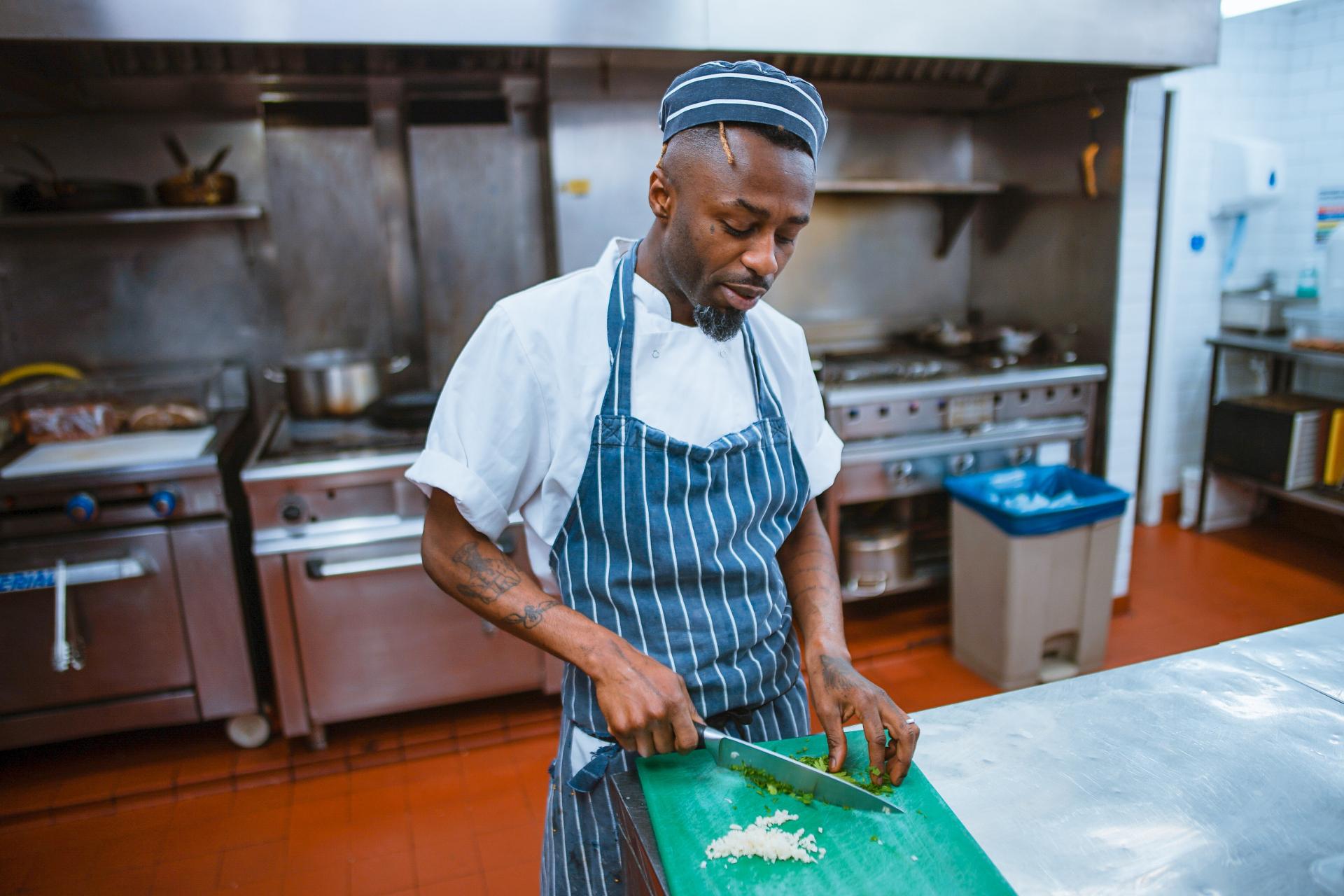
Safety rules in the kitchen are vital, although this also depends on the type of restaurant you have. The most important are those related to the operation of kitchen equipment, such as slicers, food processors, ranges, and ovens - basically anything that could cause a major accident.
You can also create rules that prevent common accidents.
Some rules that should exist in all restaurant kitchens are:
- Use gloves to remove hot trays from the oven.
- Wear thick aprons to avoid burns.
- Wear safety shoes with non-slip soles to avoid falls.
- Keep the kitchen pilots always on.
- Make sure to turn off all lights, close gas connections, and more related when closing the restaurant.
- The newest members of the kitchen should always be trained before they start working.
- Kitchen helpers with little experience cannot light ovens, kitchens, or use other hazardous equipment without the supervision of their superiors.
- No one other than the kitchen team should enter the area while the restaurant is operating.
These rules can save you a lot of problems, accidents, and more that are actually quite common inside the kitchen space.
Hygiene and Grooming Rules
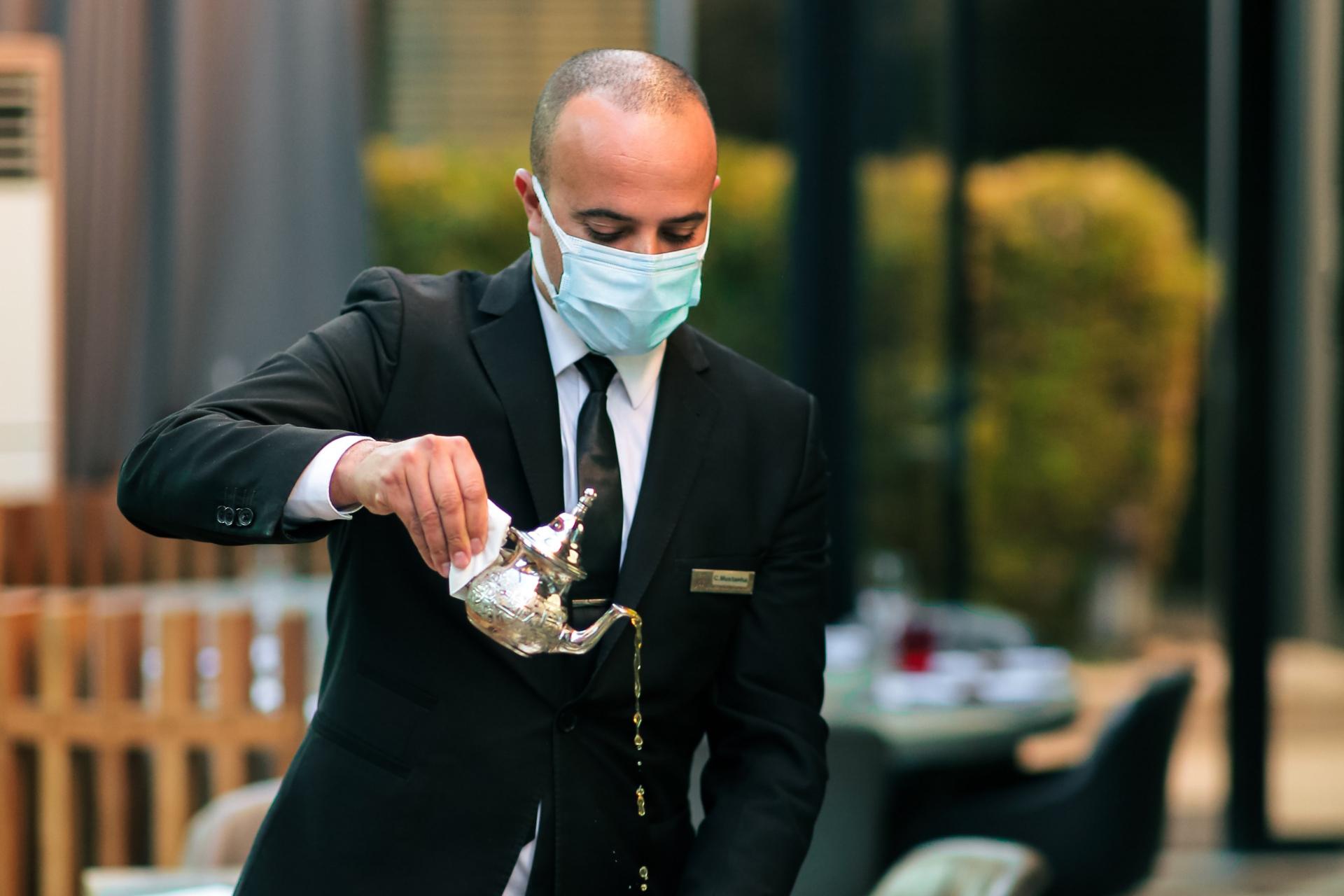
These rules are vital so that your staff is always presentable for work - regardless of their specific position.
There are several rules that are fairly common in this category:
- Waiters must report to work recently groomed.
- Waiters must keep their uniforms clean at all times.
- Waiters should keep an extra uniform with them to change into in case of accidents, stains, and more.
- Avoid using perfumes or colognes that can alter the aroma or flavor of the food, or the appetite of the diners.
- Always use the uniform correctly and without modifications.
These rules are always recommended so that your waiters do not disturb the diners in any way due to lack of hygiene, which is very unprofessional and cannot happen in a restaurant.
Rules of Communication, Treatment, and Interpersonal Relationships in the Work Area
These rules are vital so that your employees always have a good relationship with each other, that is peaceful, and professional.
The most vital are:
- Employees must not have problems with each other that affect customer service in the restaurant.
- Employees should take complaints directly to the manager so that they can be properly mediated.
- There can be no altercations in front of customers or during the service.
- Romantic relationships between employees are not allowed, and if they exist, they must inform the human resources team to receive detailed instructions in this regard.
- Employees must maintain communication with each other at all times for the restaurant to function properly.
These rules will also help you improve problem-solving among your employees at your restaurant.
Rules of Communication With the Client

The rules of communication with the client are vital so that the waiters can offer a good service at all times and so that the service is appropriate to the type of restaurant.
The most common are:
- Waiters should always ask questions about allergies or inform customers that some dishes contain allergens to avoid accidents.
- Waiters should always give a detailed description of individual costs when delivering the bill.
- Waiters must use inclusive language, good manners, and respect customers at all times.
- Problems must be solved using the service scripts.
- Serious problems should be reported directly to the restaurant manager.
This will help you manage interactions with the different types of restaurant customers that may appear in your business, as well as problems that may develop in the service.
This is also vital to better manage your business reputation, reviews, and more.
Kitchen Cleanliness and Organization Rules
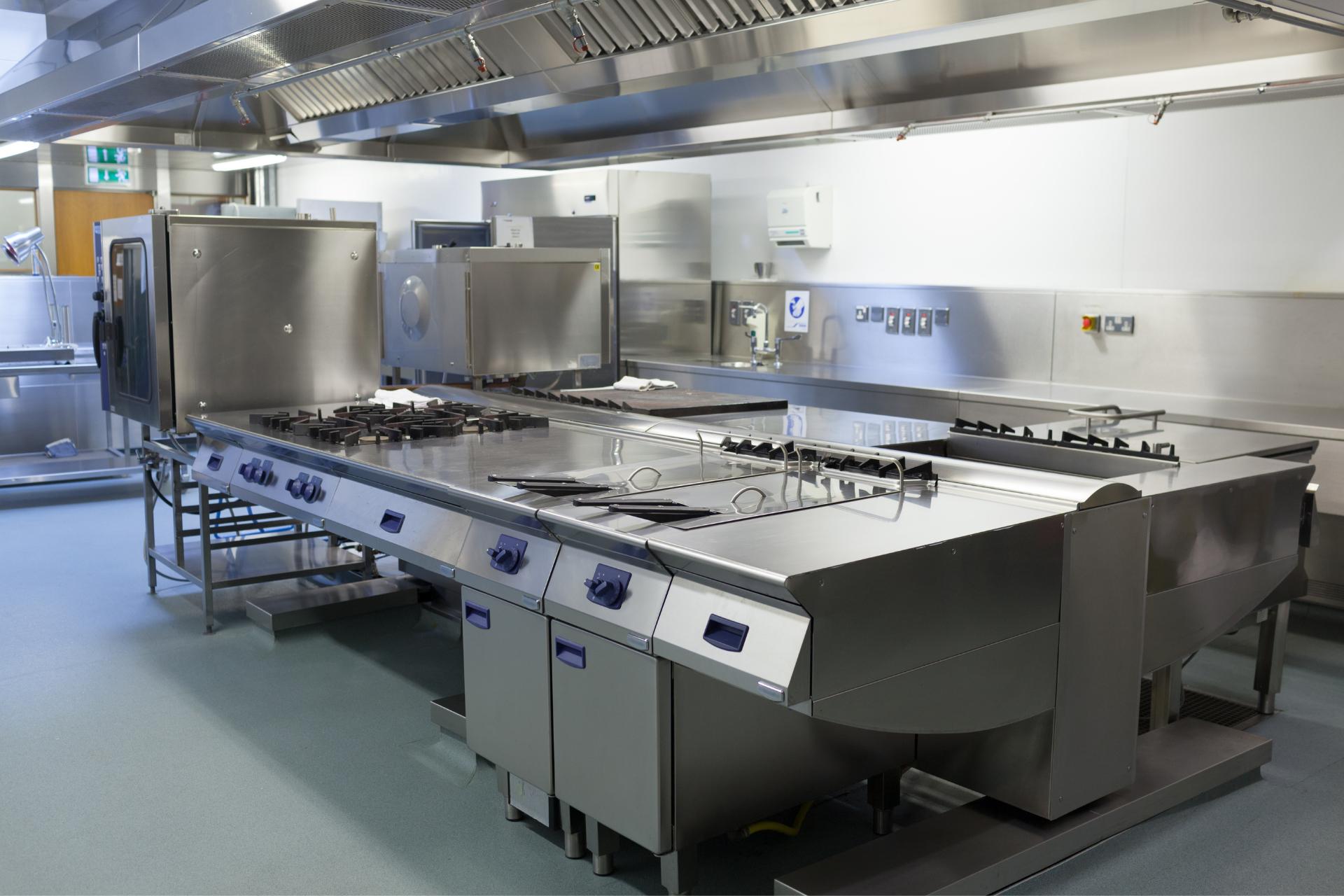
Cleanliness and organization rules must exist in all restaurants, as they reinforce the rules of communication between employees, hygiene, and food safety rules.
The most crucial are:
- Cooks should always clean their respective work areas.
- Every week there will be a deep cleaning of the restaurant kitchen.
- Cooks should help clean the kitchen and make sure dirty dishes, utensils, and more always make it to the dishwasher.
- If something is spilled in the kitchen, it should be thoroughly cleaned up as soon as possible to avoid future complications and accidents.
- All glassware and cutlery to be used in the service should be checked to ensure that it is properly cleaned before being used in the service.
- Service waste must be separated to meet the restaurant's recycling standards.
These rules are easy to establish and will go a long way toward improving the distribution of cleaning workloads within the kitchen.
They are the rules that you should establish as soon as possible when opening your restaurant.
Rules for Cleaning and Organizing the FOH
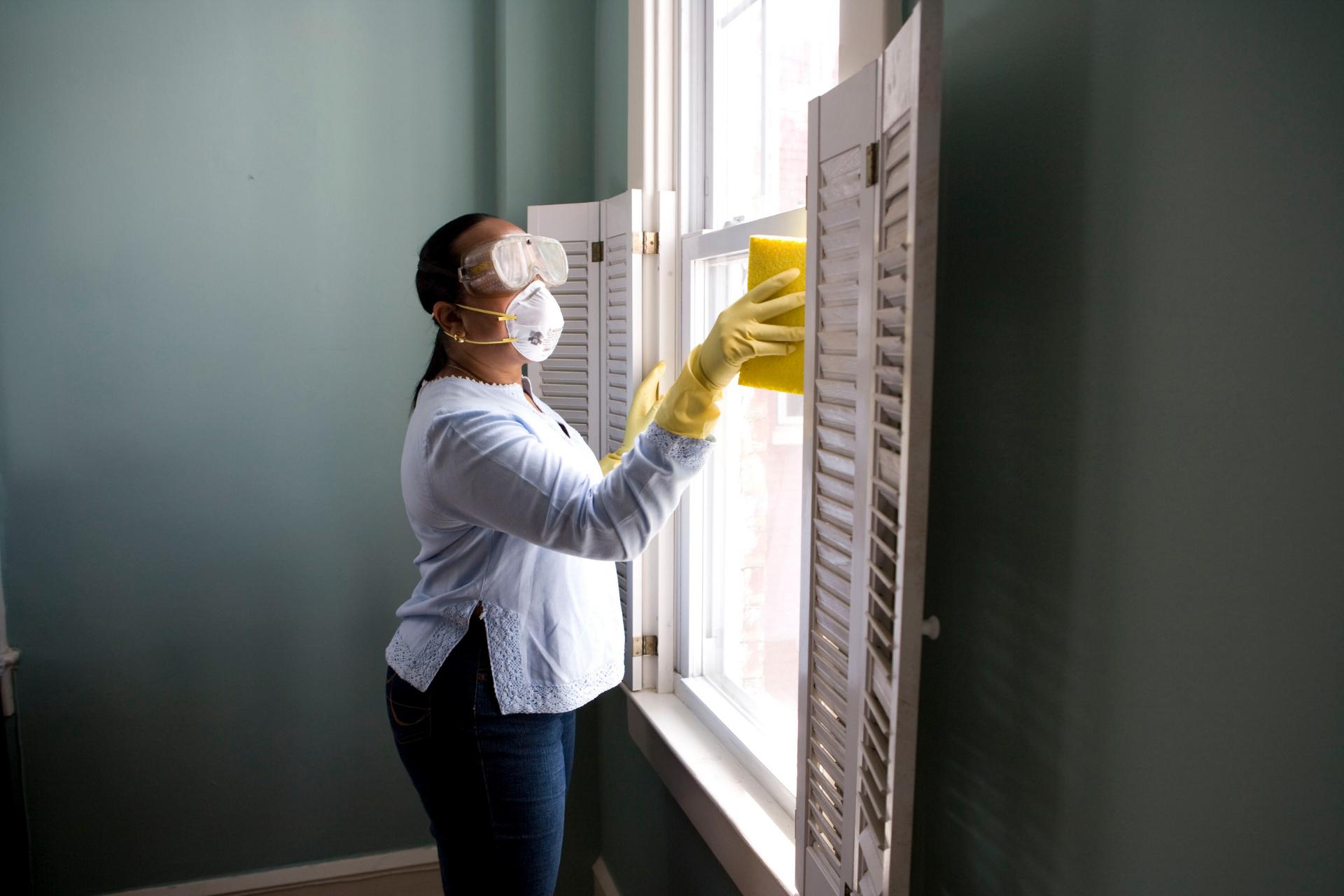
You should train your waiters and your cleaning team, if you have one, so that your restaurant's dining room is always clean and organized.
The most important are:
- Cleaning employees should verify that tables are clean after each customer leaves the restaurant.
- Waiters should ask before removing plates once diners finish eating.
- Waiters should be aware of stains on tablecloths, plates, the floor, and other servers' uniforms at all times.
- Waiters must ensure that all dishes are properly plated, that silverware and cutlery are clean, and more before leaving the kitchen.
- Restaurant restrooms should be checked hourly to make sure they are fit for service.
These rules will help you make a good impression on your diners, keep your restaurant spotless, and train your employees to make sure it's that way every time.
The Rules Were Not Made to Be Broken
All the rules that you establish in your restaurant must have a specific purpose, solve a common problem, and if they are broken, they must have consequences.
You can't expect your restaurant to stay in order at all times if you don't have rules - it's an establishment that runs thanks to inherently chaotic people.
Therefore, you must remember that in order for your rules to be applied, you must make sure to hire people who are willing to follow them.
I recommend that you read our article on staff management, as it will help you hire the right staff, and manage it so that your restaurant works in the best possible way.
Do you have rules in your restaurant?
